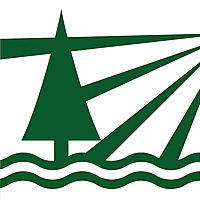Charles C. Jones Seminar
Feedbacks in the Arctic Climate System with Dr. Chris Polashenski D'07 Th'11, Senior Research Geophysicist at the Cold Regions Research and Engineering Laboratory (CRREL)
ABSTRACT: Emissions of greenhouse gases initiate climate warming. What happens next is the real question. Particularly in the Arctic, climate feedbacks often amplify change. Observations show that Arctic regions are warming nearly twice as fast as the global average. Models struggle to keep pace with these changes, often failing to replicate the rapid pace of snow, sea ice, permafrost, and glacier melt. The shortcoming indicates we have yet to fully capture the impacts of feedbacks on the Arctic climate. We do know, however, that Arctic warming is dominated by enhanced surface heating as high albedo ice and snow retreat; the ice albedo feedback. Under this feedback snow and ice melt is not only a response to warming, but also a powerful amplifier of warming. Accurate predictions of the climate system's future state depend on understanding the remarkable nuances of this ice albedo feedback and incorporating them into models. This talk will introduce Arctic albedo feedbacks, then examine the melt of the Greenland Ice Sheet. Possible factors accelerating Greenland's contribution to sea level rise by lowering its albedo will be evaluated, including forest fires, desert dust storms, snow grain growth, and emerging ice-age deposits.
BIO: Dr. Chris Polashenski D'07 Th'11 is a Senior Research Geophysicist at the Cold Regions Research and Engineering Laboratory (CRREL) and an Adjunct Professor at Thayer. He studies sea ice, ice sheets, snow, and permafrost, with a focus on identifying and understanding the feedbacks accelerating Arctic change. His research program depends on teamwork among investigators and integrates observations from satellite remote sensing, autonomous stations, and boots-on-the-ground expeditions. Results inform Earth System Model development, resulting in improved predictions of future climate state. Dr. Polashenski has led field programs around the Arctic collecting data in support of this work, having spent more than 800 days deployed in remote Arctic locations. By summer, he can be found in Vermont on a 200 acre working farm run by his wife, Norah Lake D'06, with his free-spirited beagle, Tracks. In winter he retreats north in 'reverse snowbird' fashion to Fairbanks, Alaska to revel in cold and access the Arctic beyond.
